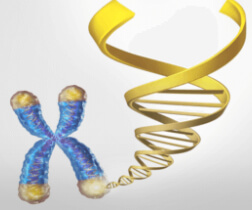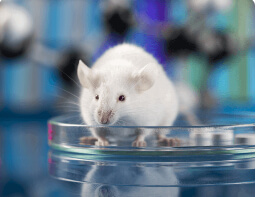Psychological stress can cause human telomeres to shorten.
It has been well documented that psychological stress can cause human telomeres to shorten (Nature, 2012, vol 490, page 169). In addition to psychological stress, the disease can be classified as a type of stress that also leads to telomere shortening. This brings in the question, can other common environmental factors also cause stress to our cells?
It has been documented that moderate stress can actually be good for humans, but few studies have been done that address mild stress and telomeres length. [1]
Alcohol Lengthens Telomeres While Caffeine Shortens Them In Yeast
In a research article, a group of scientists from Israel and the United States decided to investigate the causal relationship between environmental stress and telomere length in the yeast model organism (PLOS Genetics, 2013, 9: issue 9, e1003721). Stress, in this case, was induced in the yeast cells by exposing them to compounds (that humans consume, i.e., alcohol and caffeine) or too high temperatures for 100-400 generations.
Alcohol Lengthens Telomeres…
The authors found that alcohols and acetic acid (typically consumed by humans in the form of vinegar in salads) considerably elongated the telomeres of yeast.
While Caffeine Shortens Them In Yeast…
Whereas caffeine and high temperature shorten telomere length, other treatments, such as oxidative stress, had no long-term effect on telomere length.
The authors made other exciting observations. First, the removal of the compounds causing the environmental stress resulted in the telomere length going back to the original size. Indicating that the stress inducers worked thru a physiological response and not by causing a genetic alteration.
Second, the extension of telomeres occurred in a random fashion. This latter point is a very important point because, in order to benefit humans, the shortest telomeres must be elongated to prevent the cells from becoming old (EMBO reports, 2012, vol 13, no 1, page 52).
In this context, other naturally occurring compounds such as cycloastragenol (found in some dietary supplements), which has been shown to delay telomere shortening, may be more beneficial and a better mechanism in maintaining telomeres (The Journal of Immunology, 2008, vol 181, page 7400). Finally, by carrying out a genetic screen, the researchers were able to identify the proteins involved that mediated the telomere length, which can potentially facilitate similar research in human cells.
Although these results are very interesting, we must point out the caveat to this article as it pertains to how these results may play out with humans. First, the yeast was grown in these compounds for 100-400 generations, which is an experiment that cannot possibly be done on humans. Humans are multicellular organisms and better adapted to environmental stress than yeast. So it remains to be determined if humans will respond in the same way as yeast cells to these factors.
However, it is clear that the authors have demonstrated proof-of-principal in yeast and merits testing in mammals. Until somebody proves otherwise, these results may hold true for humans as well, but at the moment consuming cycloastragenol may be a preferred method of telomere maintenance along with other supplements that have shown to extend life since no telomerase activator study has shown that it alone, can extend life.
Our Current Recommendations: While no telomerase activator has shown to extend life in any study as of yet, products like Stem Cell Pro have some ingredients that have demonstrated the extension of lifespan in an animal model, while Micronized Resveratrol, some with tween 80 (similar to what is found in the Nitro250) has shown improved healthspan/aging in some animal models. We do not make claims they will work equally well in humans but do have great potential.
References:
- https://nutritionandmetabolism.biomedcentral.com/articles/10.1186/s12986-017-0162-x









